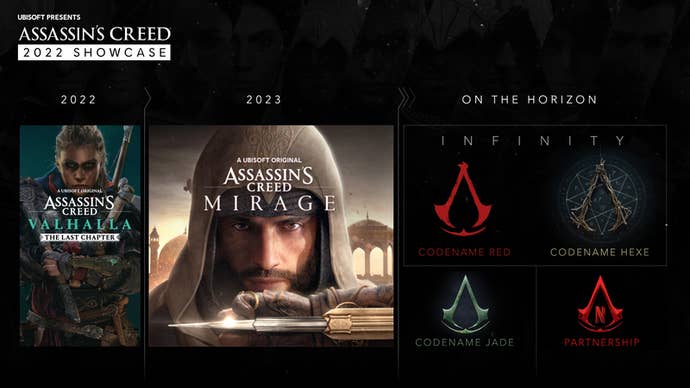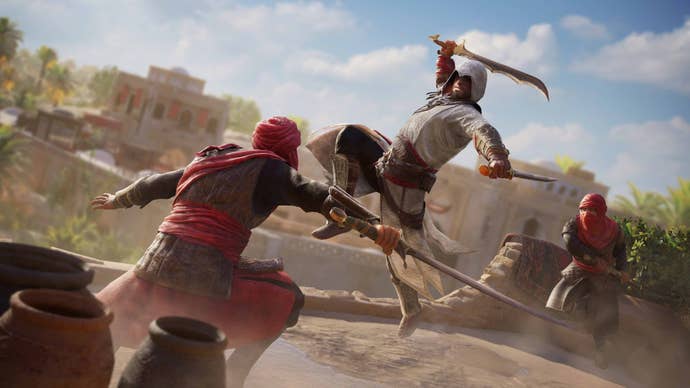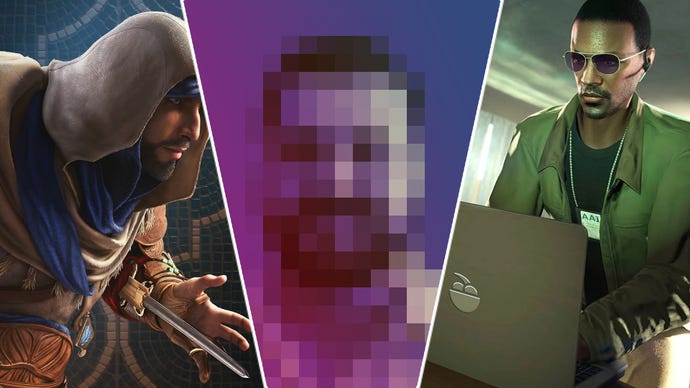The tale of ‘The Real Insider’ shows how facile and idiotic gamer leaker culture is
One of gaming's most idiotic recent controversies shines a light on a very ugly side of the video game industry.
It’s an understatement to say that this past weekend has been a pretty big one for video game leaks. That sentiment is primarily driven by the huge story of a hacker breaking into Rockstar games’ systems and illegally revealing vast swathes of the next Grand Theft Auto game – but as that happened another story quietly unfolded, one of the undoing of a recent rising star of the leaker community. It’s also a story that, I’d argue, exposes how silly this whole leaking affair is.
If you don’t follow Games Twitter with a laser focus (and who can blame you), here’s what happened. A new Twitter account popped up called ‘TheRealInsider’, and it began revealing things about upcoming gaming announcements and marketing beats. People quickly started paying attention because it got stuff right. Its initial big break was revealing information about Ubisoft’s huge slate of upcoming Assassin’s Creed games – and then more and more information about other games followed. It grew a huge following in a very short time.
As part of that Assassin’s Creed reveal, TheRealInsider made a rookie error. When one high-profile member of the media not clued in about the upcoming Assassin’s projects said he wasn’t sure their claims were true, they got smug. There was some mocking, some boasting. When the announcement came, some ‘I told you so’.
And then, of course, that person decided to dig into the insider’s background. Unluckily for the insider, that person was Bloomberg’s Jason Schreier – one of the most accomplished investigative journalists in the industry. His investigative sights turned on the leaker, and pretty quickly the house of cards came crashing down.

All of the following is alleged, of course – though given the person identified has apologized and ‘TheRealInsider’ has deleted their account in a panic, it’s fair to assume that Jason was dead-on. But, by identifying similarities in when information was learned about games, when that information was posted, and a non-forensic analysis of a few writing tics, Schreier put forward a suggestion in a Discord: TheRealInsider was an alias of an Australian YouTuber, Dan Allen.
So, is Allen an insider? Well, it depends on your definition. What became clear from Schreier’s mini-investigation was that TheRealInsider was mostly reposting information obtained the proper way – through media events and pre-briefings, where the press learn about something in advance so that we can write it up, prepare it, and then present all of the information to you all, our readers, at an agreed-upon time.
In the case of Assassin’s Creed, for instance, TheRealInsider’s post followed a very short period of time after the gaming media – including VG247 – received a briefing from Ubisoft about the games. We know from Allen’s YouTube channel that he was also part of this briefing, and what’s been alleged is that Allen took the information he’d been given in advance by Ubisoft, and broke the non-disclosure agreement taken with that company in order to share it via the anonymous ‘Insider’ account. Schreier pointed to other examples, such as tweets about the quality of Saints Row shortly after press obtained review code but before the review embargo, and so on.
After this the floodgates opened. People posted screenshots of other things, such as Allen offering to do ‘code share’ swaps of pre-release games – something also expressly prohibited in most review agreements. Allen initially denied Schreier’s claims, dismissing them as “false accusations”, but then hours later posted a classic screenshot-of-notes apology screed to Twitter.
For Allen, this is probably a pretty scary time. And I feel for him. It could end up being more than a little publicly humiliating, too, depending on the agreements – some NDAs trust-based handshake deals, but others are legally-binding documents with significant repercussions for breaking their terms. He probably has a difficult week ahead. But I’m less interested in this one guy than I am ‘leaker culture’ at large.
The case of TheRealInsider isn’t that surprising to me, as there’s some so-called insiders I know of that almost entirely trade off pre-briefed information gleaned from friends and rivals at other outlets. Some have other methods, like peeking into certain content hub back-ends to see the titles of trailers that’ll be in a State of Play in advance. Regardless of the methods, though, the reasoning is the same – and it’s not about power to the people. It’s just about clout.
Like, can we all agree that this sort of stuff is dumb and immature? This Veruca Salt-style impatience for announcements and reveals gamers have helps nobody. What was the purpose of the codenames and settings of the next few Assassin’s Creed games being revealed early, with spotty information, when we were mere days away from a proper reveal with lots of information and context? Well, largely, the point was clout for those who revealed it – being able to say ‘I told you about this first, please validate me.’ It’s silly.
Some undoubtedly will run to the comments to suggest that holding information back at publisher request is unethical, or means you’re in bed with them: it isn't, it doesn’t. I do think publishers are generally too secretive about what they’re working on (I adore BioWare’s approach of announcing games are in production early but then doing a more traditional reveal later), but I also believe a publisher has a right to reveal its games in its own time, in its own way. If I’m going to focus investigative efforts on something, I’d rather it was on bigger issues – like developer crunch or culture problems – or information that otherwise would never come to light such as canceled games or unused prototypes. I’m not interested in revealing something a little early.

Plus, embargoes often exist to help the media, too, giving us time to prepare good quality content so that you can learn about a new announcement in-depth – rather than in a poorly-written, 280-character tweet that might not even get everything right.
I’m all for exposing hidden information that deserves to be exposed. There’s not enough proper, important journalism in gaming – and we’ve got studios stacked up with issues around pay, discrimination, stress, and crunch. The games media isn’t innocent, either, and has plenty that needs to be surfaced and discussed. Leaks can be empowering - if they reveal something that would've never been made public otherwise. Revealing a planned announcement early doesn't empower anything but your own ego, and the needs of deeply impatient children.
Or, to be a little less abrasive, revealing something a little early feels less necessary. But in this age of Twitter as a central part of the gaming conversation, it’s all about getting there first – all about instant gratification. There are responsible reporters uncovering the good stuff, of course. There are even great solo Twitter news accounts that avoid dubious leaks, like Nibellion - but for every one of these, there's ten wannabe gaming Snowdens spouting absolute nonsense.
“So many of these insiders are just people breaking embargoes,” tweeted former VG247 deputy editor and traitor Kirk McKeand. “The other day, we got a CoD press release under embargo, and five minutes later, someone was writing about it as a “scoop”. It’s a Twitter clout economy built around people who have mates in journalism who tell them stuff they shouldn’t. Obviously some people do good work because it’s usually a story about something else, not just 'this thing exists', which serves no one imo.”
This can also lead to sloppiness – even good, proper journalists somehow have this belief that a tweet from a personal account is just casual, and therefore not in need of the same source and information vetting you’d do going to print in your publication (even if readers hang off every word you tweet as gospel). This is how you get the really sloppy stuff, like the repeated false claims around Metroid Prime and the GameCube Zelda games every other Nintendo direct. The truth is, these projects probably do exist – where there’s smoke, there’s fire – but it’s the desire to be the one that said it first that leads to things being put out there and presented as imminent when they ain’t.
.jpg?width=690&quality=70&format=jpg&auto=webp)
And you know what? I get it. I’ve been there. When I was a teenager, when I was first pressing into the industry, I too got involved in this stuff. I leaked a couple of announcements in those heady days, when I was in desperate search for an audience for the then-fledgling RPG Site. But I pretty quickly realized how little it all meant, and how much damage it could cause to developers; and so I stopped. Since those days, it feels like the speed and volume of modern social media has only made matters worse – and it’s all just silly.
The Rockstar hack is one kind of awful – tossing out stuff that’s been shared in confidence a short time in advance just for the sake of it is another.
Anyway, I think it’s bloody stupid. But moreover, I think that if even half of these insider reporters put this effort instead into real reporting on real issues, they might collectively be able to create significant change around important problems and challenges the industry faces. The fact that quick hits of slightly early information is prioritized is just sad.









